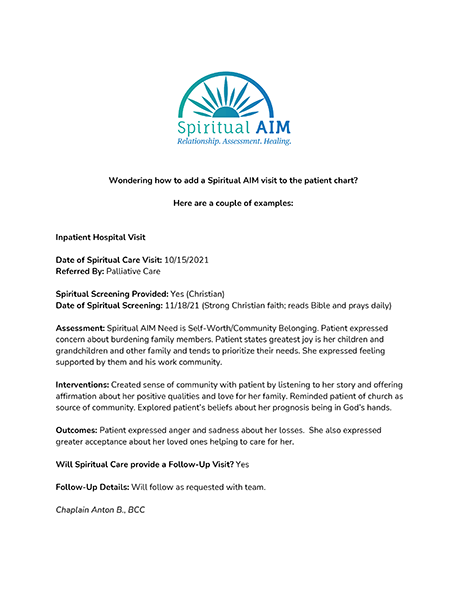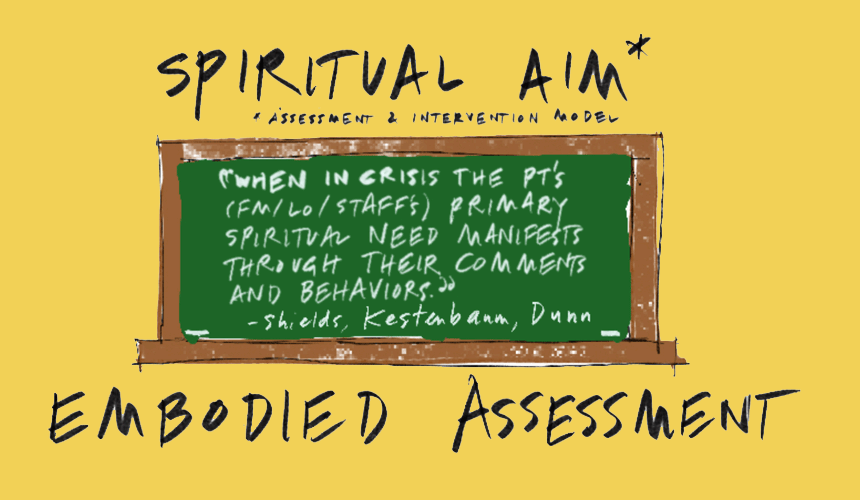Determining how to best reflect spiritual assessment in a patient’s chart can be a challenge. Here are some examples from our own practice that may be helpful.
EXAMPLE: Inpatient Hospital Visit
Date of Spiritual Care Visit: 10/15/2021
Referred By: Palliative Care
Spiritual Screening Provided: Yes (Christian)
Date of Spiritual Screening: 11/18/21 (Strong Christian faith; reads Bible and prays daily)
Assessment: Spiritual AIM Need is Self-Worth/Community Belonging. Patient expressed concern about burdening family members. Patient states greatest joy is her children and grandchildren and other family and tends to prioritize their needs. She expressed feeling supported by them and his work community.
Interventions: Created sense of community with patient by listening to her story and offering affirmation about her positive qualities and love for her family. Reminded patient of church as source of community. Explored patient’s beliefs about her prognosis being in God’s hands.
Outcomes: Patient expressed anger and sadness about her losses. She also expressed greater acceptance about her loved ones helping to care for her.
Will Spiritual Care provide a Follow-Up Visit? Yes
Follow-Up Details: Will follow as requested with team.
Chaplain Anton B., BCC
EXAMPLE: Outpatient Telehealth Palliative Care/Symptom Management Visit
Video visit with patient, wife (Elsa) and team members Mary Smith (NP), John Low (LCSW), Richard Lawrence (RN) on 12/06/2021.
Spiritual Screening:
Do you have any spiritual or religious beliefs or practices you would like us to be aware of? YES- Finds connection to divine through nature, particularly hiking in the desert
Do you have a religious community? No
Spiritual Assessment, Interventions & Outcomes:
| Spiritual AIM – SELF-WORTH & BELONGING TO COMMUNITY | Spiritual AIM Applied to this patient |
| Patient tends to blame self; prioritizes caring for others. | Patient expressed feelings of guilt about wanting to continue treatment due to concerns about burden on family. |
| Chaplain affirms patient and offers community by listening to his/her story. | Chaplain affirmed patient’s ability to prioritize his wishes. |
| Patient prioritizes their needs and desires. | Patient expressed hopefulness and sense that his family will affirm his decision. |
Family/Relational Resources or Concerns: None discussed during this visit.
Advance Care Planning: Patient requested advanced directive form and asked to discuss at next visit.
Follow up: With outpatient palliative care team; continue to offer emotional and spiritual support to patient.
Chaplain Helen F., BCC





